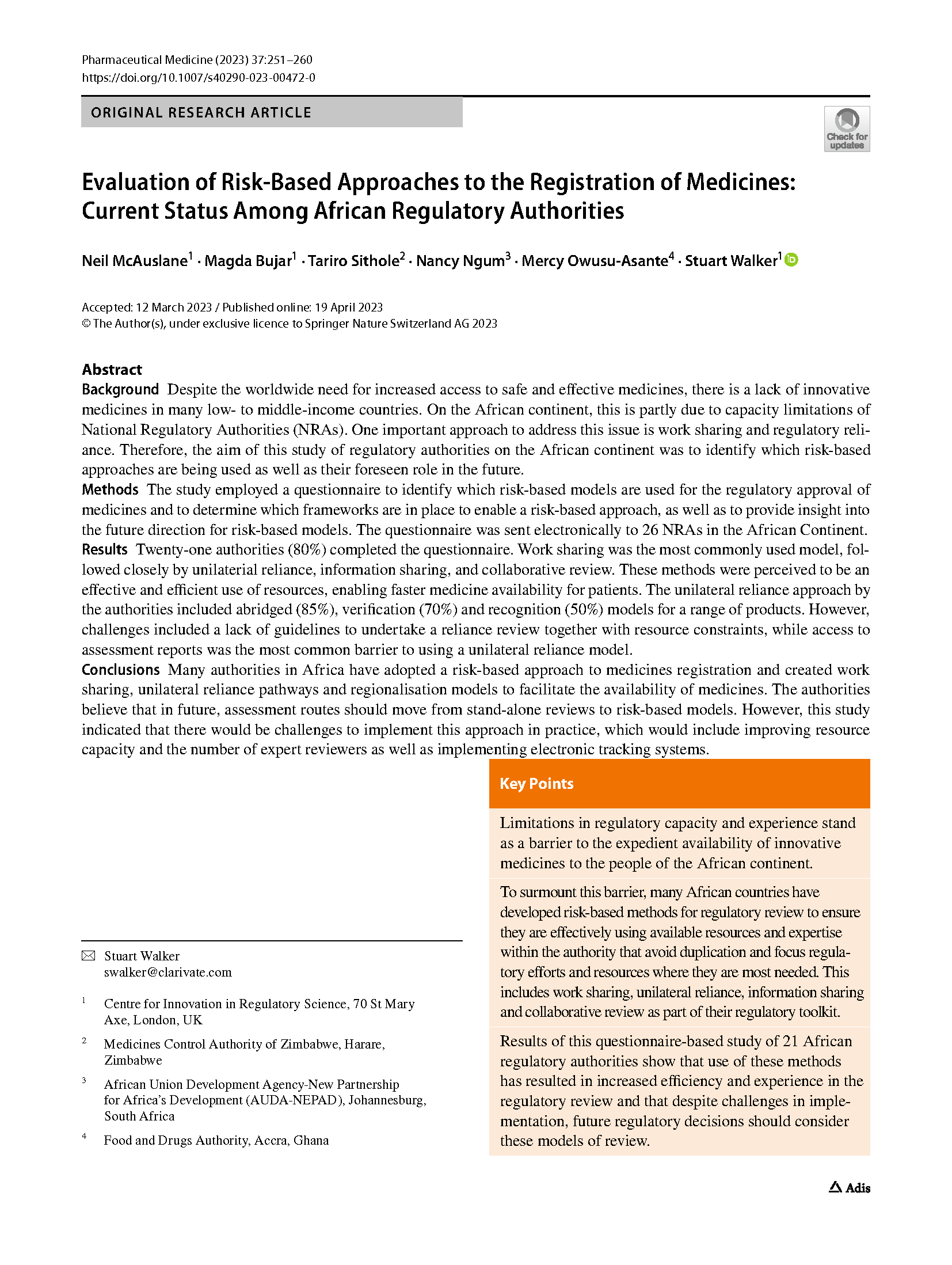Background: Despite the worldwide need for increased access to safe and effective medicines, there is a lack of innovative
medicines in many low- to middle-income countries. On the African continent, this is partly due to capacity limitations of National Regulatory Authorities (NRAs). One important approach to address this issue is work sharing and regulatory reliance. Therefore, the aim of this study of regulatory authorities on the African continent was to identify which risk-based approaches are being used as well as their foreseen role in the future.
Methods: The study employed a questionnaire to identify which risk-based models are used for the regulatory approval of
medicines and to determine which frameworks are in place to enable a risk-based approach, as well as to provide insight into the future direction for risk-based models. The questionnaire was sent electronically to 26 NRAs in the African Continent.
Results: Twenty-one authorities (80%) completed the questionnaire. Work sharing was the most commonly used model, followed closely by unilaterial reliance, information sharing, and collaborative review. These methods were perceived to be an effective and efficient use of resources, enabling faster medicine availability for patients. The unilateral reliance approach by the authorities included abridged (85%), verification (70%) and recognition (50%) models for a range of products. However, challenges included a lack of guidelines to undertake a reliance review together with resource constraints, while access to assessment reports was the most common barrier to using a unilateral reliance model..
Conclusion: Many authorities in Africa have adopted a risk-based approach to medicines registration and created work sharing, unilateral reliance pathways and regionalisation models to facilitate the availability of medicines. The authorities believe that in future, assessment routes should move from stand-alone reviews to risk-based models. However, this study indicated that there would be challenges to implement this approach in practice, which would include improving resource capacity and the number of expert reviewers as well as implementing electronic tracking systems.
.
McAuslane, N., Bujar, M., Sithole, T. et al. Evaluation of Risk-Based Approaches to the Registration of Medicines: Current Status Among African Regulatory Authorities. Pharm Med 37, 251–260 (2023). https://doi.org/10.1007/s40290-023-00472-0

